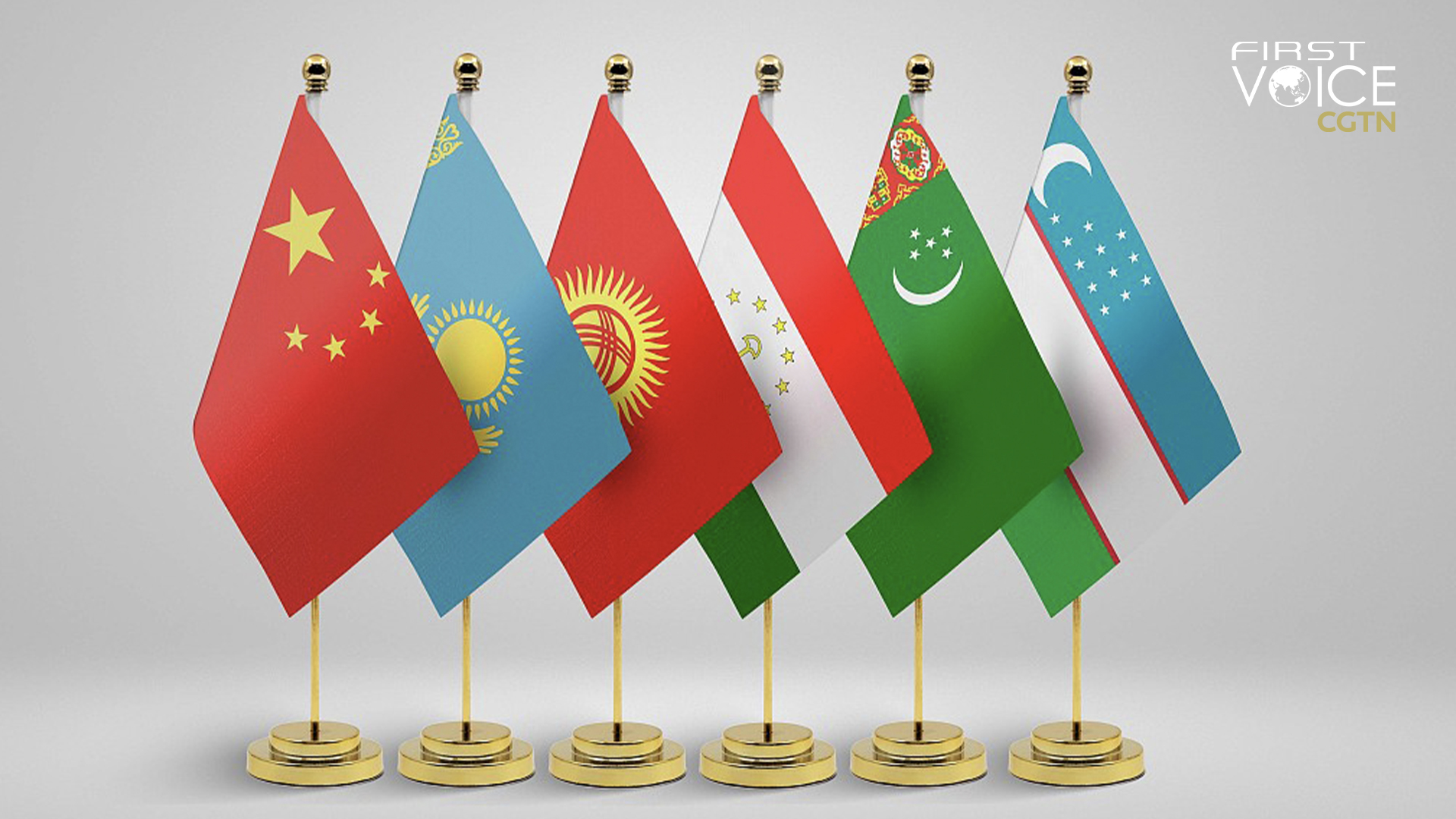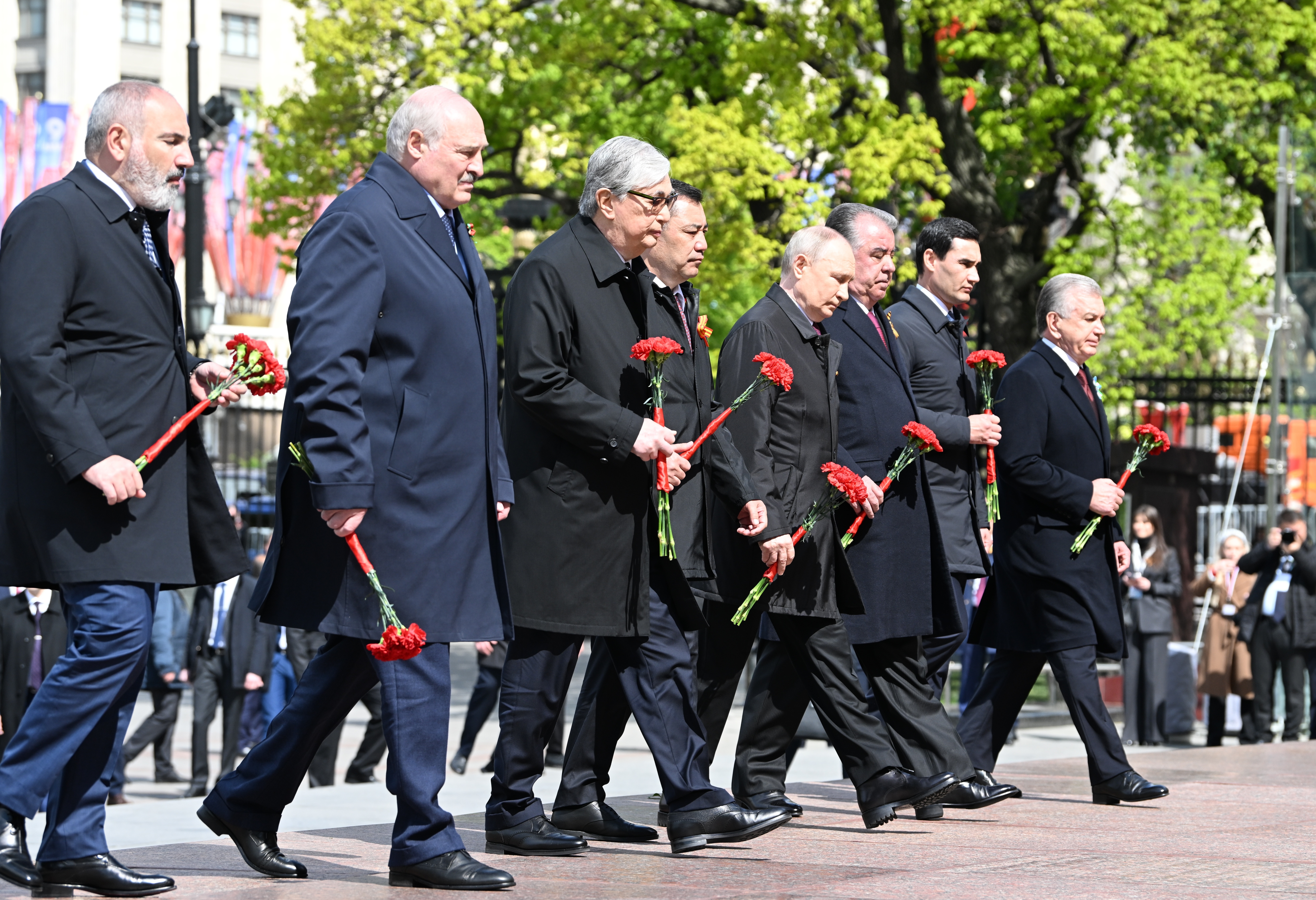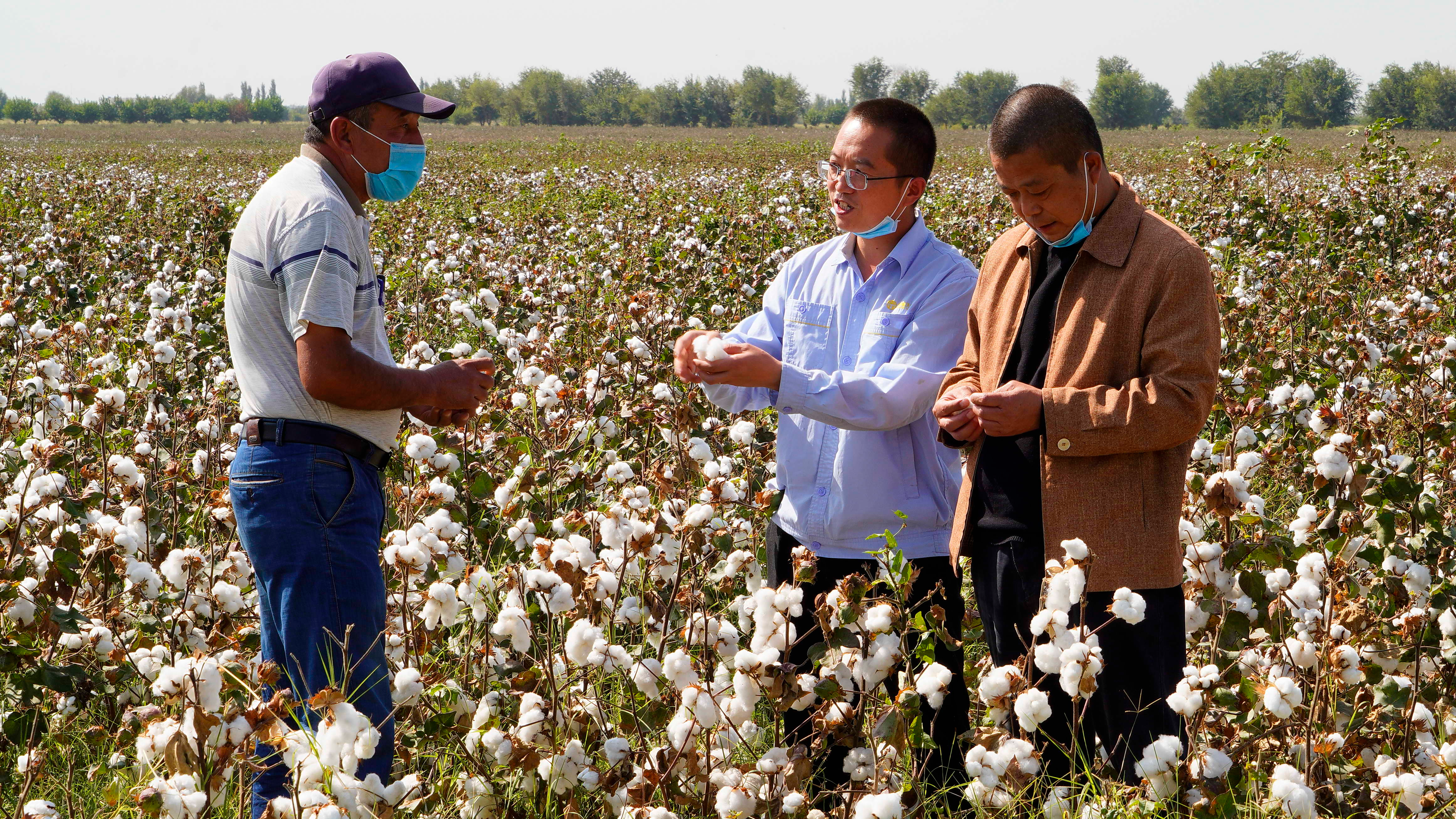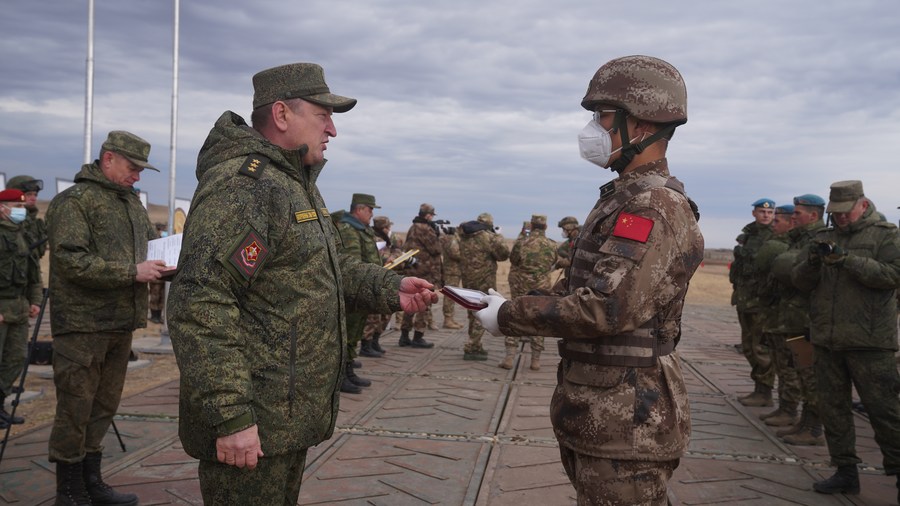
Editor's note: CGTN's First Voice provides instant commentary on breaking stories. The column clarifies emerging issues and better defines the news agenda, offering a Chinese perspective on the latest global events.
Xian, the capital city of China's Shaanxi Province, was once an ancient capital of China and a departure point for the ancient Silk Road. On May 18, the city will be hosting the first China-Central Asia Summit, welcoming leaders in the region to a historical and groundbreaking event that'll shape the region's development for years to come.
Many of the narratives on the China-Central Asia relationships are about the geopolitical dynamics in the region. Especially now, with the ongoing Ukraine conflict, people have been questioning whether China is taking the chance to expand its influence into the region at the expense of Russia's retreat and whether Russia might not be happy about it.
These are convenient ways of generalizing complex relationships into one-dimensional talking points that attract eye-balls and clicks online. They ignore the long and complicated relationship Russia has with Central Asia, the different aspects of economic cooperation China and Russia have with these countries, the duo's crucial role in the stability and security of the region, and the motives behind promoting the geopolitically-focused talking points.
Russia has a unique and close relationship with Central Asia
From the Tsarist empire to the Soviet Union, Central Asia and Russia have shared a long history as living under one governing system. Even after the breaking of the Soviet Union, Russia and Central Asian countries became autonomous nations, and they still share similar political systems and philosophy. In Kazakhstan and Kyrgyzstan, Russian remains the official language. And it's also widely spoken in the region.
Railroads, pipelines, highways and other critical infrastructures left behind when the Soviet Union broke up are still the connective tissues that are linking these countries together with Russia. According to the Carnegie Endowment for International Peace's report, in the second quarter of 2022, more people from Central Asian countries went to work in Russia than at any time in the last six years. Trade between Russia and Central Asian countries increased by 15 percent in 2022, exceeding $42 billion.

From left, Armenian Prime Minister Nikol Pashinyan, Belarusian President Alexander Lukashenko, Kazakhstan's President Kassym-Jomart Tokayev, Kyrgyzstan's President Sadyr Japarov, Russian President Vladimir Putin, Tajikistan's President Emomali Rahmon, Turkmenistan's President Serdar Berdimuhamedov and Uzbekistan's President Shavkat Mirziyoyev take part in a wreath-laying ceremony on Victory Day marking the 78th anniversary of the Victory over Nazi Germany in World War Two, at the Tomb of the Unknown Soldier at the Kremlin wall in Moscow, Russia, Tuesday, May 9, 2023. /AP
From left, Armenian Prime Minister Nikol Pashinyan, Belarusian President Alexander Lukashenko, Kazakhstan's President Kassym-Jomart Tokayev, Kyrgyzstan's President Sadyr Japarov, Russian President Vladimir Putin, Tajikistan's President Emomali Rahmon, Turkmenistan's President Serdar Berdimuhamedov and Uzbekistan's President Shavkat Mirziyoyev take part in a wreath-laying ceremony on Victory Day marking the 78th anniversary of the Victory over Nazi Germany in World War Two, at the Tomb of the Unknown Soldier at the Kremlin wall in Moscow, Russia, Tuesday, May 9, 2023. /AP
So, from historical, political and economic points of views, Russia and Central Asia are deeply intertwined. It's a relationship that's unique to themselves and can't be easily undercut by the change in the geopolitical dynamic.
China, which has its own unique relationship with Central Asia, has no intention of "taking over" as the so-called "leader."
China-Central Asia's win-win cooperation
The China-Central Asia relationship stretches back thousands of years. Around 140BC, during China's Western Han Dynasty (202BC – AD25), Zhang Qian, a royal emissary of the emperor, travelled west into the Central Asia and Middle East from Xian on a mission of peace. He's considered the first person to accomplish such a feat. And his quest opened the Silk Road linking the East and West that’s still actively shaping today's regional relationships and policies.
Thousands of years later, China and the five Central Asia countries have witnessed a rapid warming of relationships. In 2013, when Chinese President Xi Jinping visited Central Asia for the first time, he proposed for the first time for China and Central Asian countries to build the Silk Road Economic Belt. Since then, the Belt and Road Initiative has become a defining feature in the China-Central Asia relationships.
Kyrgyz President Sadyr Zhaparov described it as giving the region an opportunity to "fulfill the strategic task of direct access to seaports and turn the region into a transportation hub of transcontinental highways from east to west, and from north to south."
In 2022, trade between China and the five countries surpassed $70 billion, about 100 times the volume they had when diplomatic relations were established three decades earlier. China's imports of agricultural, energy and mineral products from these countries jumped over 50 percent. And China’s direct investment stock in them reached nearly $15 billion.
Through the Belt and Road Imitative, China and Central Asian countries deepened their trade and economic cooperation. China built its first overland cross-border energy channel for natural gas with the Central Asian countries. The pipeline ran from Turkmenistan and Uzbekistan, through southern Kazakhstan, all the way to Horgos city in China's Xinjiang Uygur Autonomous Region. Roughly 10,000 km in total length, it was the world's longest natural gas pipeline. The gas it transported has benefited more than 300 million people in China.

Chinese experts exchange cotton planting experience with local farmers in Uzbekistan, 2020. /Photo provided by Yang Kaiwen
Chinese experts exchange cotton planting experience with local farmers in Uzbekistan, 2020. /Photo provided by Yang Kaiwen
The mutually-beneficial relationship China and Central Asia have built over the past three decades in addition to the thousands of years of interactions don't need anyone "courting" others, as some arguments in the West put it. It's about continuing and expanding on what the two sides already have to create greater prosperity for China and for the countries in the region.
But, prosperity can't happen without security and stability. And this is where China and Russia are playing important roles together.
The crucial China-Russia duo on regional security
In 2001, China, Russia and four of the five Central Asian countries formed the Shanghai Cooperation Organization (SCO) to collectively ensure regional stability and security. Created in response to dealing with terrorism and regional instability, the SCO has been holding routine exercises between member states to deepen defense and security cooperation.
In a joint statement released in February, 2022, China and Russia stated that they aim to comprehensively strengthen the SCO and further enhance its role in shaping a polycentric world order. President Xi said at the SCO Samarkand summit in 2022 that "The Eurasian continent is home to us all. Upholding its peace and development is the shared goal of countries, both in our region and the world at large, and the SCO shoulders an important responsibility in meeting this goal."
Since the U.S. withdrawal from Afghanistan, regional stability has been undermined by the growing volatility. At the SCO summit in Samarkand, the member states declared that a timely coordination on Afghanistan is one of the important factors for maintaining and consolidating security and stability in the region. It is reported that the China-Central Asia Summit will specifically take up this matter. It'll be featured as a prominent topic.

A representative of Chinese troops receives medals in the closing ceremony of the "Peace Mission 2021" counter-terrorism military drill of the SCO member states, at the Donguz training range in Russia's Orenburg Region on Sept. 24, 2021. /Xinhua
A representative of Chinese troops receives medals in the closing ceremony of the "Peace Mission 2021" counter-terrorism military drill of the SCO member states, at the Donguz training range in Russia's Orenburg Region on Sept. 24, 2021. /Xinhua
The West’s backyard mentality destabilizes, not benefit, the region
As the situation in Afghanistan has shown, the West's irresponsibility in its foreign policy has created great instability. But it still doesn't recognize this fact and seeks to undermine those who are facilitating regional development.
By seeing Central Asia as someone's own sphere, that mentality haunts all of the West's judgement when it comes to China and Russia. As for that group's leader, the United States, the backyard mentality is even more deeply rooted. U.S. Secretary of State Antony Blinken's visit to the region earlier in the year was surrounded by reports and analyses that the U.S. is trying to make inroads into the region to counter China and Russia's influence and to drive a wedge between the two.
Before his visit, his assistant Secretary of State made it clear that Blinken would "be looking to draw a line under how our engagement is different from the engagement of Moscow and Beijing." For them, Central Asia is a diplomatic battlefield where it could find chances to undermine China and Russia's diplomatic goals. And it’s that mentality that's distorting their views on the China-Central Asia relationship.
The backyard mentality in the Western narrative reflects two different approaches to diplomacy. The West likes to recognize a set of countries as the leaders of a "civilized" world which the rest should follow. The G7 meeting that will be held in Japan starting on May 19 is a perfect reflection of that thinking where a small group of countries that don't even represent the majority of the world will seek to make decisions for the entire planet.
Central Asian countries are independent countries with their own national needs and pursuits. China seeks to facilitate their development because, as neighbors with a long history, positive development benefits everyone. Decades of cooperation and respect towards each other's interests have led to a burgeoning economic relationship and a more secured and stable region. And this China-Central Asia Summit will solidify the progress and ensure that this relationship will keep breaking new ground and elevate to higher levels.
(If you want to contribute and have specific expertise, please contact us at opinions@cgtn.com. Follow @thouse_opinions on Twitter to discover the latest commentaries in the CGTN Opinion Section.)